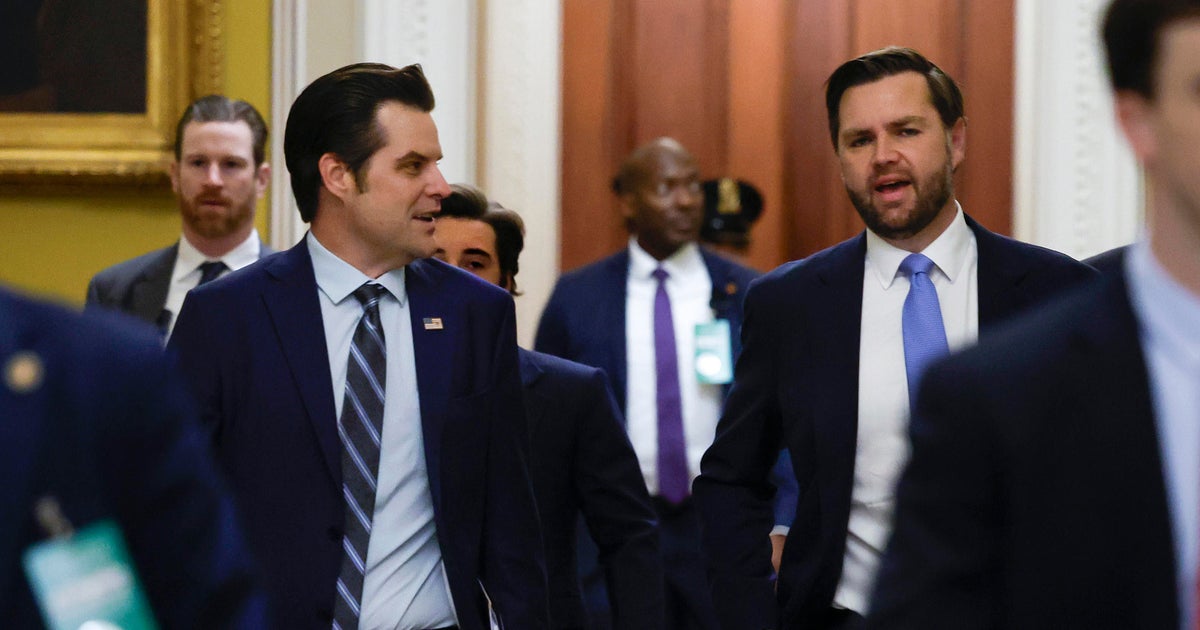Justice Department to form new domestic terrorism unit
The Justice Department will launch a new unit centered on tackling the rising challenge of domestic terrorism, the agency's top national security official revealed Tuesday, appearing before Congress just days after the one-year anniversary of the January 6 assault on the U.S. Capitol.
"The threat posed by domestic terrorism is on the rise," Assistant Attorney General Matthew Olsen told the Senate Judiciary Committee. "The number of FBI investigations of suspected violent extremists has more than doubled since the spring of 2020."
The problem is two-fold, as officials at the Department of Justice say they have witnessed a mounting threat from offenders motivated by both racial animus and anti-government ideologies.
"Racially or ethnically motivated violent extremists are most likely to conduct mass casualty attacks against civilians, and militia violent extremists typically target law enforcement and government personnel and facilities," Jill Sanborn, the head of the FBI's National Security Branch, told lawmakers.
Olsen said the Department of Justice's fledgling unit would "augment" the agency's existing approach.
"This group of dedicated attorneys will focus on the domestic terrorism threat, helping to ensure that these cases are handled properly and effectively coordinated across the Department of Justice and across the country," the top official added.
Yet questions remain about the kinds of cases the unit will tackle.
While there is no federal domestic terrorism statute, U.S. law defines domestic terrorism as violence intended to coerce or intimidate either a civilian population or government policy. Olsen noted that the definition "provides us with expanded authorities, including enhanced sentencing for terrorism offenses."
And partisan concerns over the new unit were apparent on Tuesday. Judiciary Committee chair Dick Durbin envoked the events of January 6 at the outset of the hearing.
Prosecutors have alleged in courtrooms that January 6 defendants committed "crimes of terrorism," but the Department of Justice has yet to employ the types of domestic terrorism sentencing enhancements Olsen referenced as part of its ongoing investigation.
Pushed by Senator Mazie Hirono of Hawaii on whether the department will apply sentencing enhancements in future January 6 cases, Olsen said "it's possible," adding that prosecutors would rely on the "facts and circumstances of each case."
Republican lawmakers, however, argued that discussion of the Capitol assault wrongly overshadowed the unrest across the United States in 2020 that stemmed from racial justice protests following the police killing of George Floyd in Minneapolis.
"These anti-police riots rocked our nation for seven full months, just like the January 6 assault on the Capitol rocked the nation," Senator Chuck Grassley of Iowa said.
FBI and Justice Department officials have insisted that they do not treat domestic terrorism any differently based on what ideology it may stem from. Sanborn noted during Tuesday's hearing that the FBI has opened more than 800 investigations originating from the 2020 unrest and that "just a little north of 250" people have been arrested.
Attorney General Merrick Garland said last week that "the central norm" governing criminal investigations is "there cannot be different rules depending on one's political party or affiliation."
The unveiling of the Department of Justice's new unit marks a years-long shift in addressing domestic violent extremism as the primary threat to the U.S. homeland, outflanked by the threat of international terrorism in the wake of the September 11, 2001 attack on the World Trade Center and Pentagon.
Recent deadly attacks in El Paso, Pittsburgh, Charleston and Denver underscore the growing footprint of terrorism from within the United States.
Last week, Department of Homeland Security Secretary Alejandro Mayorkas called the threat of domestic, violent extremism "grave," noting that the current threat environment has "not diminished" since the January 6 attempted insurrection "but has certainly held steady, if not grown in severity."
Attorney General Merrick Garland said last week that "the central norm" governing criminal investigations is "there cannot be different rules depending on one's political party or affiliation."
Rob Legare contributed reporting.



